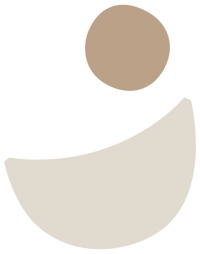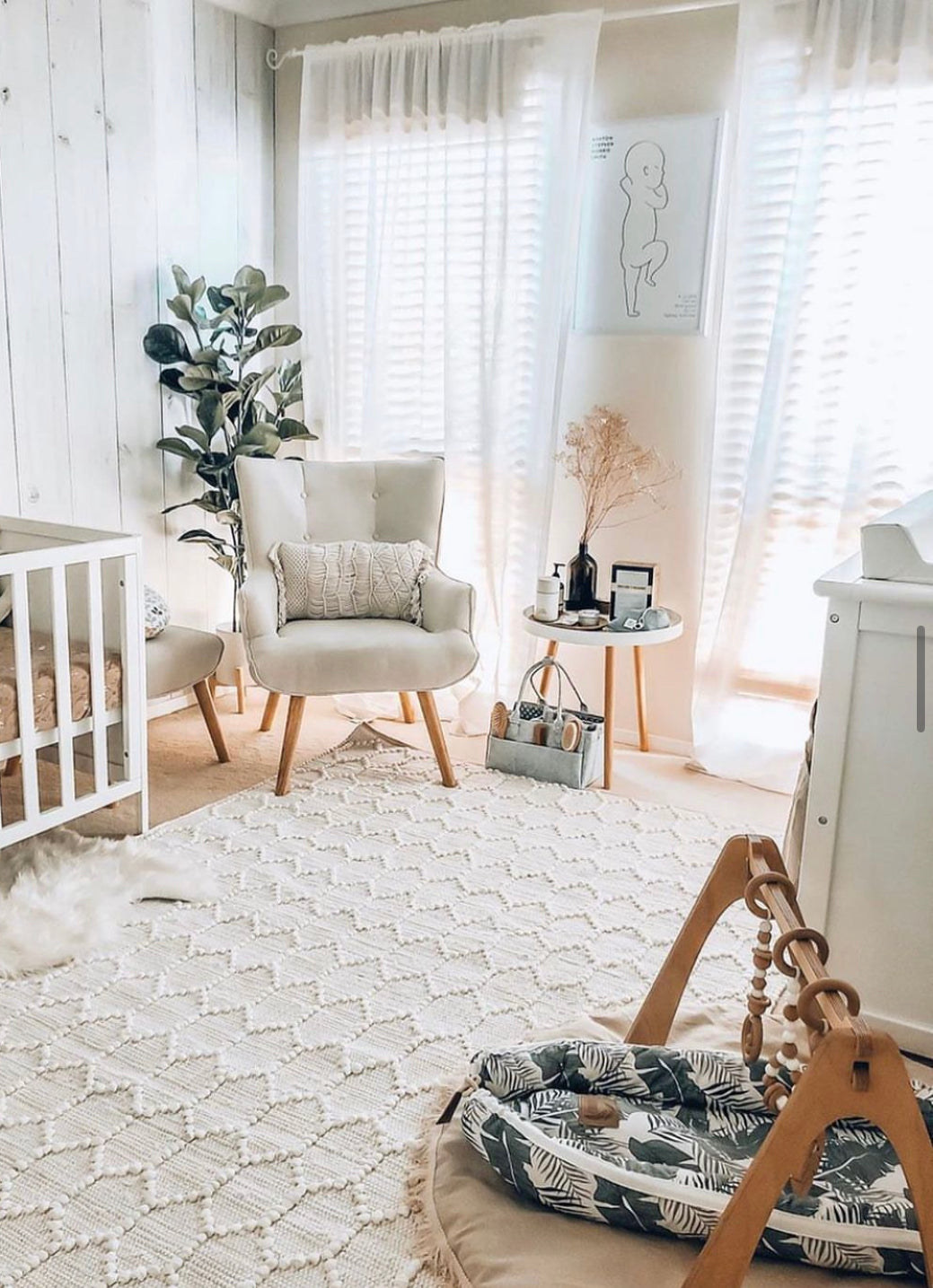Putting together the nursery for your unborn babe has got to be one of the most exciting activities as an expectant parent. That mindful mix of anticipation and excitement, curating the perfect space for your little one as you dream of what life will be like when they finally make their way earthside. For many of us we spend hours deliberating over colour palettes, planning our perfect theme or picking the best possible nursing chair. But how many of us think about how to create the healthiest (and toxin-free) space for our little ones?
You might be surprised what common things we can overlook during the dreaminess of planning a bub’s arrival, but luckily we’ve done the hard work for you.
Our 5 Tips to Create a Healthy Nursery:
1. Use products with natural materials only
Bring Nature inside! Use products with natural materials only - choose timber, wool, cotton and other materials straight from nature. If you can find Organic alternatives, choose these as they are grown without the use of harmful pesticides and fertilizers.
Stay away from plastic and polyester in toys, bedding and furniture – plastic and polyester contain harmful chemicals and substances that are released in three ways – through heat, when rubbed and with oil. If bub is resting on polyester or cuddling a toy that has polyester, it is likely that microplastics and other chemical are released and enter bub via air or skin.
Be aware that a lot of wood furniture is made from pressed wood materials. These are made from wood fibres that are then glued together with a formaldehyde-based resin. Materials containing formaldehyde can release formaldehyde gas or vapor into the air, but good news is that most formaldehyde is released from products within 2 years, so a great idea is to source second hand timber furniture locally. Buy second hand, upcycle and reuse - this is also much better for the environment (and your wallet).

2. Let fresh air in
There is evidence that the air in homes can be more polluted than outdoors, even in the most industrialized areas, so open the windows as often as possible to get some fresh air. More chemicals are also degassing in humidity so try to keep humidity indoors to a minimum.
Good air circulation also reduces the risk of mould which should be avoided for both kids and adults. Opening windows also encourages natural light which (contrary to what we’re often told) can help bub sleep better at night. Studies show babies who are exposed to natural light during the day sleep better at night than those who are only exposed to artificial indoor lights.

3. Use plants to purify air
Indoor pollutants that affect health are formaldehyde (found in pressed wood products, furnishing, some textiles), Volatile Organic Compounds (found in paints and lacquers, cleaning supplies, pesticides, furnishings), airborne biological pollutants (such as pollen and fungi), carbon monoxide and nitrogen oxides (both from fuel burning), pesticides and disinfectants, and radon (a radioactive gas that exists naturally in soil and can enter your home through cracks and get trapped). These pollutants can cause symptoms ranging from allergies, headaches, fatigue, nervous-system disorders and cancers.
A study from NASA in 1989 showed that plants purify the air and can absorb these harmful substances. The 18 best plants to reduce air pollutants can be found here. Also always check with the plant nursery staff that the selected plants won’t irritate babies’ skin if touched.
4. Use natural cleaning products
Your child will be touching floors and other surfaces in the nursery, and the little hands will most likely end up in the mouth. Therefore you only want to use cleaning products that are safe even if they are ingested. Keep in mind that many banned chemicals were only banned after years and years of use, which means there could be chemicals in use today that could be banned in the future.
Even if a chemical is deemed ‘safe’, no research has yet been done as to how chemicals react in our bodies when combined with other chemicals in our surroundings – this is commonly called the “chemical cocktail”
Instead of spraying chemicals in your baby’s nursery, go for natural cleaning products. A good rule of thumb is that if they are edible then you know they are safe.
We love to use vinegar as a natural disinfectant. Just use ½ cup of vinegar in 4 liters of hot water to mop floors or clean surfaces. You can even add some lemon juice in for a fresher smell.
Baking soda also absorbs odours and is a mild alkali that can dissolve dirt and grease. Sprinkle on a damp cloth to scrub surfaces such as sinks or ovens.
It’s also important to wet dust or vacuum often as the chemicals that off-gas from non-organic furniture and materials settle in the house dust.

5. Try not to be too clean (yep, you read that correctly)
An extremely clean house could actually be dangerous for your child! Experts believe that kids that are exposed to germs early in life may grow up to have a more robust immune system and be less prone to allergies. So a bit of dirt and messy mud play can be a good for your child.
A study in Sweden showed that kids whose parents sucked on dropped dummies before popping them into bub's mount had fewer allergies than the kids whose parents boiled and sterilised them. Saliva is a very rich source of bacteria and viruses, and the researchers believe that microbes are transferred from parent to infant when they suck on the same pacifier and this exposure promotes the immune system, counteracting allergy development. Researchers also say a cheeky lick from your pet dog isn't so bad either (but we're still not 100% convinced on that one)!
At the end of the day what we want to avoid by all means is bub's exposure to chemicals and toxins. Anything toxic affects children first. Their bodies are smaller (and so are their little detoxifying livers) so toxins will affect them more than adults. Therefore we want to ensure our homes are free from toxins and harmful chemicals that could be harmful to our most precious little ones.
We hope you enjoy creating your perfect healthy nursery!



